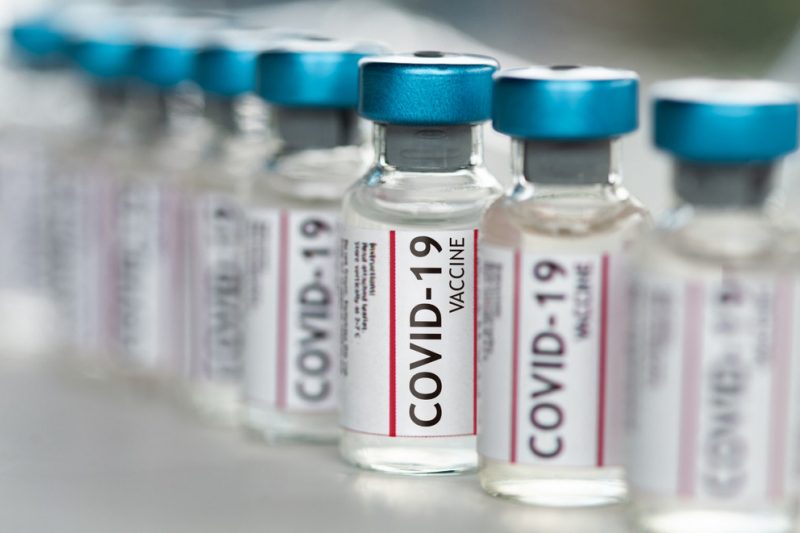PITTSBURGH – Acting Physician General Dr. Denise Johnson Tuesday visited the University of Pittsburgh Medical Center (UPMC) Outpatient Center South Side in Pittsburgh to discuss COVID-19 treatments and vaccine available to Pennsylvanians.
“We are making tremendous progress in the fight against COVID-19, but we continue to see hundreds of new cases of COVID-19 reported every day in Pennsylvania,” Johnson said. “In fact, more than 512 residents are hospitalized today (Tuesday).
“Aside from getting vaccinated to prevent COVID-19 hospitalization, there are treatments available for the most at-risk COVID-19 patients to help them recover.
“Meanwhile, it is important that Pennsylvanians continue practicing all necessary personal safety measures to protect themselves and their loved ones from the virus.”
One of the treatments includes monoclonal antibodies. These are proteins built in a laboratory to work like your immune system to fight off harmful viruses like the COVID-19 virus.
From November 2020 through mid-February 2021, the federal government distributed more than 40,000 doses of monoclonal antibodies to healthcare systems throughout the commonwealth.
“Monoclonal antibodies – particularly when given soon after infection – have proven tremendously beneficial in keeping our patients from needing hospitalization and from dying,” said Dr. Donald Yealy, chief medical officer, UPMC, co-author of a recent analysis comparing outcomes in COVID-19 patients who did and did not receive monoclonal antibodies. “If you get COVID-19, ask your doctor about monoclonal antibodies. It just might save your life.”
Healthcare providers can order and receive monoclonal antibodies directly from the distributor. Providers can then ensure that patients who meet the criteria are able to receive this treatment in a range of different settings.
Health care systems determine eligibility for the antibodies based upon the U.S. Food and Drug Administration (FDA) emergency use authorization (EUA) guidelines.
There are currently three COVID-19 treatments authorized for adult and pediatric individuals with mild-to-moderate COVID-19 that are not hospitalized, and one treatment for patients hospitalized with COVID-19.
Any COVID-19 treatment should be administered shortly after the infection is contracted and only after consultation with and direction by a licensed medical provider; there are currently no “over the counter” treatments for COVID-19.
While these treatments exist, it’s important to remember that there are three safe and effective vaccines available in the U.S. that can keep people from being hospitalized or dying from COVID-19.
Through clinical studies, all of the vaccines have proven effective at preventing death and hospitalizations from COVID-19.
The Pfizer-BioNTech COVID-19 vaccine is 95% effective, the Moderna COVID-19 vaccine is 94% effective and the Johnson & Johnson (Janssen) is 66% effective.
“We live in a world made better and safer by vaccines, and that certainly includes the COVID-19 vaccines,” said Dr. Debra Bogen, director of the Allegheny County Health Department.
“Without vaccines, our children would still be susceptible to disabling or deadly infections such as polio, diphtheria, tetanus, pertussis, measles, mumps and others.
“These once common infections are now rare due to vaccines; when they are occasionally seen now, it is largely among the unvaccinated.
“Like other vaccines, the safety and effectiveness of COVID-19 vaccines are well established – with well over 100 million people already vaccinated. I urge everyone to please get vaccinated to protect you, your children, your loved ones and our community.”
“We want to encourage everyone to get vaccinated,” Johnson said. “For the two-dose vaccines, it is imperative that people who get their first dose of vaccine also get their second dose to make sure they have the most protection available against the virus.
“If you have already been vaccinated, we ask you to talk with your loved ones and friends about your vaccination experience and why you chose to get vaccinated. Remember, these vaccines provide the best layer of protection against the COVID-19 virus.”
The CDC recommends that people who previously received monoclonal antibodies as a part of COVID-19 treatment defer COVID-19 vaccination for at least 90 days after completing the treatment.
This recommendation is for people who have not yet been vaccinated or people who contract COVID-19 and receive monoclonal antibodies after their first dose, but before their second dose of vaccine.
